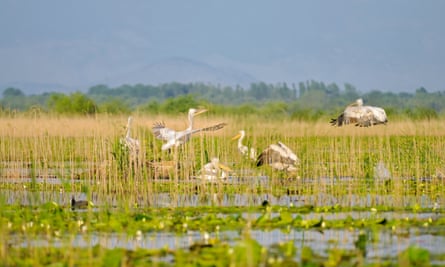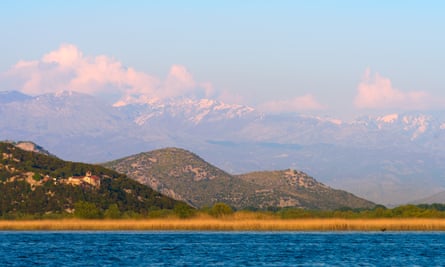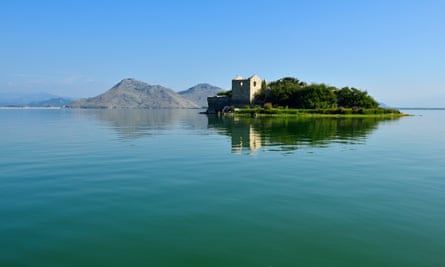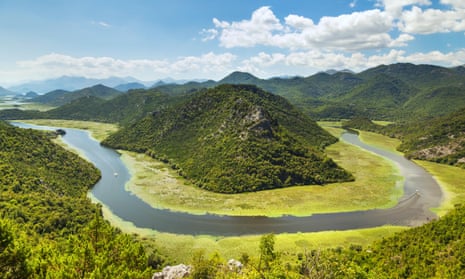Like its Adriatic neighbour Croatia, Montenegro is a rapidly-growing travel destination: in 2016 there were nearly 1.5 million visits from international tourists – up 6.9% on 2015. But although the country is known for eco-tourism and as a “soft adventure” hotspot, tourism development hasn’t been without controversy.
Despite local concern and protests, many concrete resorts have sprung up. In coastal Budva, for example, international developers were recently given permission to convert a second world war concentration camp on Mamula island into a luxury resort.

The latest controversy involves Lake Skadar national park, a protected wilderness area and southern Europe’s largest lake. According to a report in New Scientist, “more than 280 bird species are found at this largely pristine lake, as well as nearly 50 fish species, 18 of which are found nowhere else, earning it a place on the Ramsar Convention list of Wetlands of International Importance”. It is under threat after the government gave the go-ahead for the building of a luxury resort, Porto Skadar Lake. The resort will sleep 600 guests in 30 villas and feature a marina. Several hydropower projects are also planned, on the lake’s major tributary, further endangering biodiversity.
At present, the only thing that disturbs the waters on the shores of the lake is wildlife (including the rare Dalmatian pelican and endangered otters) and the odd monk in a boat from the 14th-century Kom monastery.

Local conservationists know that it will take more than a monk’s prayers to stop the hotel development, especially as the bulldozers are now in place and preliminary digging started last month, with a completion date in 2019. Conservationists consider this to be a slippery slope towards destruction of the park.
“The government said it had a public discussion about the plans and no one turned up, but it was only advertised a week in advance, and in a newspaper no one reads,” said activist Milan Knezevic, who has set up the Save Skadar Lake Facebook page, as well as a Twitter site and a petition on change.org. Supporters protested on 20 December and gained signatures committing to a moratorium on the construction from nearly half of the country’s government ministers. Yet the digging still began eight days later.

Montenegro’s tourism ministry claims all procedures “were in accordance with the law and good practice”, something Knezevic contests. “There is no control of illegal activities in the national park and any claim by the government that the resort will be closely monitored is a fantasy. There are already more than 100,000 illegal buildings in Montenegro. The government is planning to privatise all five national parks in Montenegro. I don’t want to speak about my country’s beauty in the past tense, as we’re already doing about parts of the Montenegrin coast.”
In the UN’s International Year of Sustainable Tourism for Development, plans for these resort aren’t ticking any environmentally responsible tourism boxes says Justin Francis, founder of Responsible Travel: “I hope the Montenegrin government will recognise the long-term ecological and economic value of protecting Lake Skadar from destructive, large-scale tourism developments.”
As one can assume the monks who live on the lake would say, amen to that.

Comments (…)
Sign in or create your Guardian account to join the discussion